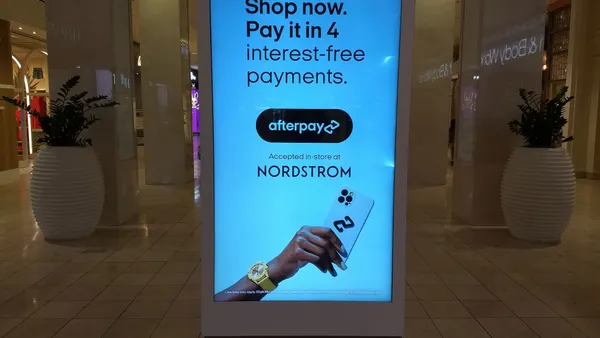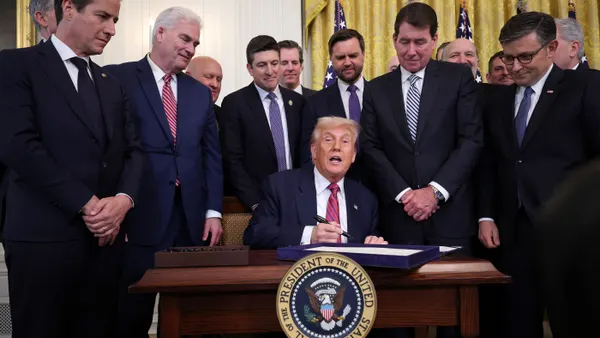E-commerce juggernaut Amazon is upping the ante in its battle against card giant Visa, informing United Kingdom consumers that it won’t accept U.K.-issued Visa credit cards for transactions.
The move escalates an Amazon campaign to drive down the interchange fees it pays to Visa when customers use Visa’s credit cards to make purchases. The Seattle retailer has been waging the battle mainly by imposing surcharges on Visa purchases in some markets. Amazon argues that the card fees hurt retail businesses and result in higher prices for consumers.
“These costs should be going down over time with technological advancements, but instead they continue to stay high or even rise,” an Amazon spokesperson said by email. “As a result of Visa’s continued high cost of payments, we regret that Amazon.co.uk will no longer accept UK-issued Visa credit cards as of 19 January, 2022.”
In a double-ding to Visa, Amazon noted that customers can still use other non-Visa credit cards on its United Kingdom site, and does still also accept debit cards from Visa and other companies. “With the rapidly changing payments landscape around the world, we will continue innovating on behalf of customers to add and promote faster, cheaper, and more inclusive payment options to our stores across the globe,” Amazon said in the statement.
One saving grace for San Francisco-based Visa in the latest salvo may be that Amazon won’t impose the new edict until Jan. 19, avoiding warfare over the holiday shopping season and giving the companies time to work out their differences, the Wall Street Journal reported.
“We have a long-standing relationship with Amazon, and we continue to work toward a resolution, so our cardholders can use their preferred Visa credit cards at Amazon UK without Amazon-imposed restrictions come January 2022,” Visa said in a comment via email.
“We are very disappointed that Amazon is threatening to restrict consumer choice in the future. When consumer choice is limited, nobody wins,” Visa also noted in its statement.
Shares of credit card giant Visa, which operates the largest credit card network in the U.S., dropped on the news while those of Amazon seemed not to be impacted.
The U.K. battle follows on steps taken by Amazon earlier this year to impose surcharges on Visa transactions first in Singapore in August and the following month in Australia. In those shots across Visa’s bow, Amazon also noted its opposition to Visa’s growing fees.
Amazon singled out Visa for the surcharges, suggesting it intends to keep pressuring on the no. 1 card company, which is also grappling with federal anti-trust probes and scrutiny from U.S. policymakers concerned about a duopoly, including competitor Mastercard.
Meanwhile, a swarm of well-financed payment fintech startups is finding new ways to process payments and threatening legacy payments companies like Visa and the banks that have traditionally issued credit cards. Those incumbents charge merchants interchange fees every time a consumer presents a credit card to pay for a transaction.
Amazon, led by billionaire founder and Executive Chair Jeff Bezos, explained its complaint like this in September: “These costs should be going down over time with innovation and technological advancements, which allows merchants to reinvest savings into low prices and shopping enhancements for customers. Yet, despite these advancements, some cards’ cost of payments continue to stay high or even rise.”
Even as it imposed the surcharge in Australia, Amazon said it didn’t want customers to have to pay it, and offered the $20 gift card as a testament to that commitment. “These are the first countries we’ve decided to make changes in, but this is a global issue and is not isolated to Australia and Singapore,” Amazon said at the time.
The Amazon spokesperson didn’t immediately respond to a question on whether the surcharge has been imposed in other markets. A spokesperson for Visa declined to comment.












